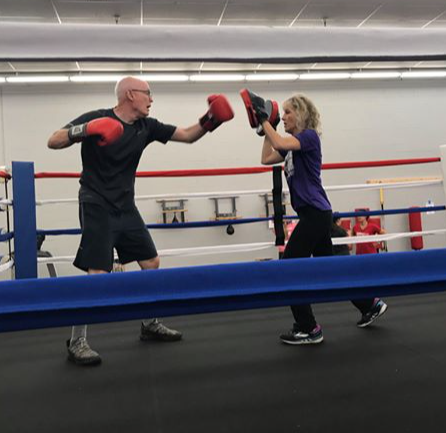We recently connected with Kimberly Berg and have shared our conversation below.
Hi Kimberly, really happy you were able to join us today and we’re looking forward to sharing your story and insights with our readers. Let’s start with the heart of it all – purpose. How did you find your purpose?
My purpose comes from my family. My parents were older when I was born, both being hard-working farmers. My Dad, despite many war-related injuries and illnesses, never complained and instilled in us that showing up and doing your best is good for your heart. He showed us you can do great things even when you don’t feel your best. My mother loved to dance, sing, and box since her brother boxed. She taught me to dance, drum, treat sick animals, and to box. As a result, I worked in rehab and went on to dance professionally, which is a superpower I didn’t expect would serve me so well in my career. I’ve been in health care my entire adult life, working in animal science, sports medicine, cardiopulmonary rehab, Parkinson’s exercise training, and dancing (of course). I believe it is what I was meant to do—to serve in any way I can.
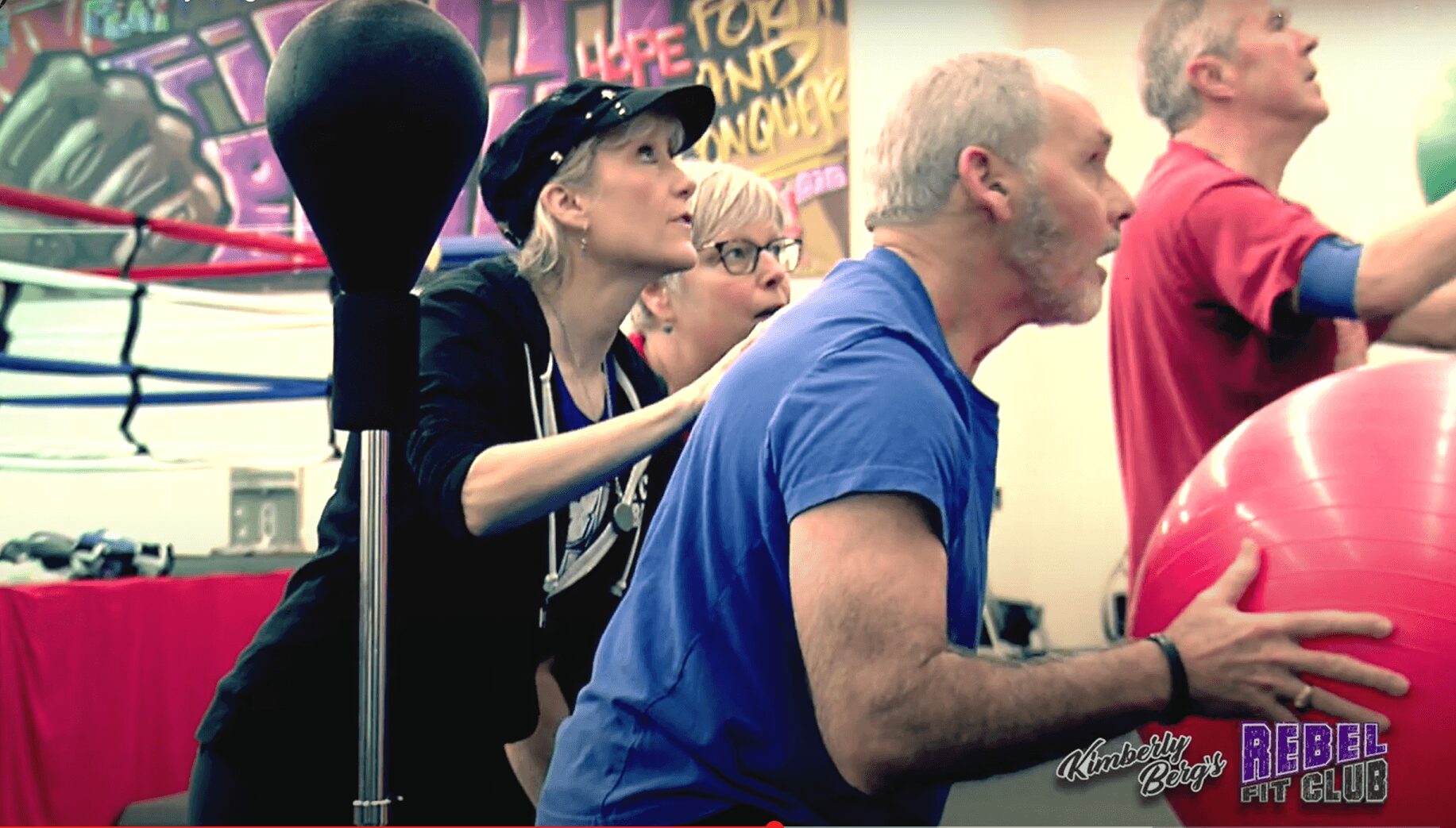
Great, so let’s take a few minutes and cover your story. What should folks know about you and what you do?
In 2006, I was working directing cardiac rehab programs and also privately with clients with orthopedic needs, when one of my clients, a world-renowned researcher in the areas of balance and PD, asked to “pick my brain” about setting up a program for people with Parkinson’s. The OHSU research center in Portland, Oregon, had a grant to develop a comprehensive exercise program to address the predominant motor and non-motor symptoms of PD. After we talked, I was asked to join their team to help with the research. I jokingly said to the participants, “When this is done, I am going to add music and dancing to your routine!” They held me to it, and I started my own Parkinson’s program. Soon thereafter, another PD program asked me to take their students also.
The problem was most PD programs available at that time lumped people with different abilities together. People with canes and walkers were in class with people who were not as physically challenged. The higher-functioning people weren’t able to work as hard as they needed and wanted to. In my program, I divided up students based on ability level and brought in volunteers and other coaches. I took the higher-ability people on the basketball court and pushed them hard with ball drills, jogging on the track, and yes, dancing. Every time they came back to class they asked to be pushed more because they felt alive again.
I then had the idea to teach my students a modified version of Michael Jackson’s “Thriller” dance. By trial and error, I learned how to take my dance experience and teach people with tremors, stiffness, and spatial awareness difficulty by using mental imagery and a lot of love for the mission. I called this group the PD Rebel Performance Project. We performed “Thriller” live numerous times, and later rented space in the same cemetery where Grimm was shot and had a professional videographer film our performance for social media.
Because of that “Thriller” video, I was called by the Brian Grant Foundation to be their exercise coordinator and Brian’s coach. (Brian is a former NBA player who was diagnosed with PD at age 39.) I set up classes, wellness retreats, and exercise videos for people with young-onset Parkinson’s. I worked with the Foundation for four years while continuing with my other PD program and dancers.
In 2015, I started my own business, renting space in boxing gyms to teach my members non-contact boxing. It grew really fast, so I started adding more boxing classes in different locations. I worked from 4am to 7pm, teaching all of the classes in three locations.
In 2016, my PD Rebel Performance Project dancers were asked to perform “Thriller” at the World’s Parkinson’s Congress on opening night—this time with special effects make-up artists and props my fighters made. The program continued to grow steadily, and I added two more boxing satellite sites.
In the fall of 2019, I opened my own 12,000 square foot training center, the Rebel Fit Club, a center of HOPE specifically for people with Parkinson’s. We had our big grand opening and ribbon-cutting ceremony, and then a few months later the pandemic hit. We pivoted quickly and began teaching all of our classes virtually. We had to be creative to keep people’s attention and learn how to manage technical difficulties, but soon we had over 100 people in each of our different classes. It was a challenging time, and I did not pay myself for two years, but our fighters continued to report improvements in their balance, strength, and dexterity with our Zoom classes.
Here we are in 2025, and classes are booming at all of my sites. We offer all functional levels of boxing, dance, drumming, yoga, tai chi, and Pilates. Our virtual classes and our dance performances went international during the pandemic. We have many coaches and volunteers. We all agree that what we get back in love and gratitude from our fighters and dancers is worth all the hard work. It’s the best job. It was a dream of everyone involved, and for me, I get to play and dance with people who never imagined they would be in the best shape of their lives after their diagnosis.
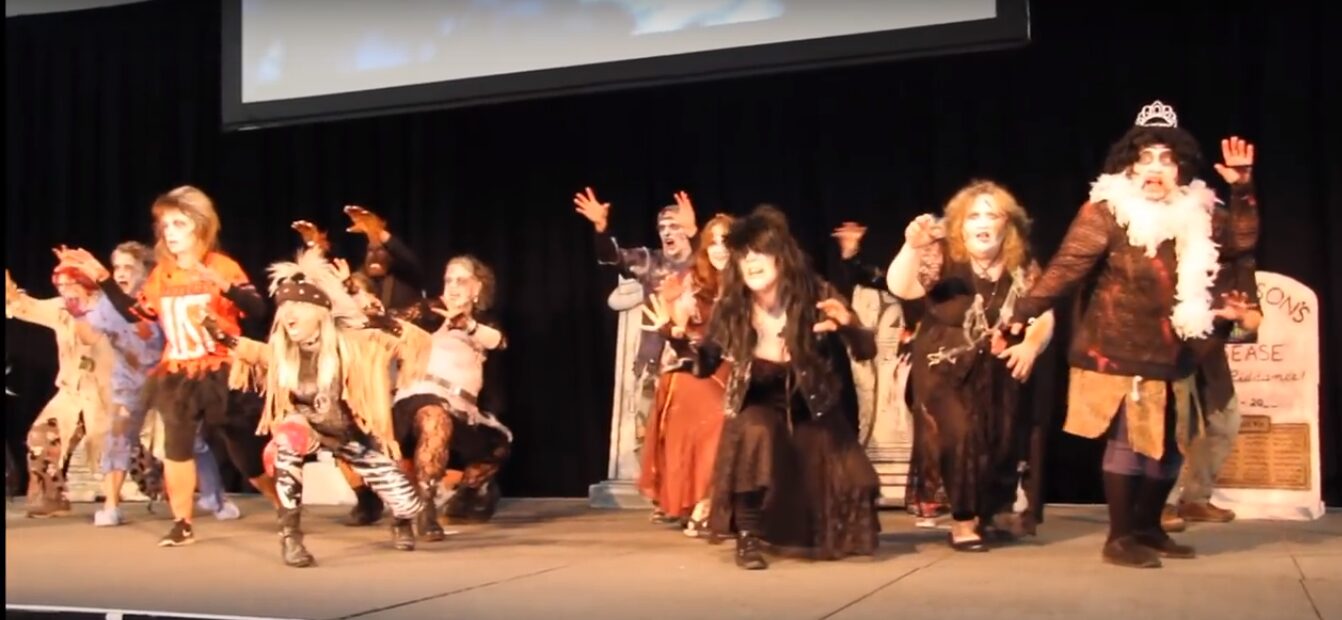
If you had to pick three qualities that are most important to develop, which three would you say matter most?
1) Hustle. You have to work harder than ever in your life. I would carry three or four jobs at the same time in the past. This was all that and more but for just one goal. I still get up at 4am but now I go to bed at 8pm.
2) Don’t take no for an answer. If you believe something needs to happen and it’s right for the mission, find a way. Nothing was easy for me, but I knew people were depending on me to make things happen.
3) Ask for help and keep networking. I was blessed to pull in favors and I learned from other businesspeople and other therapists.
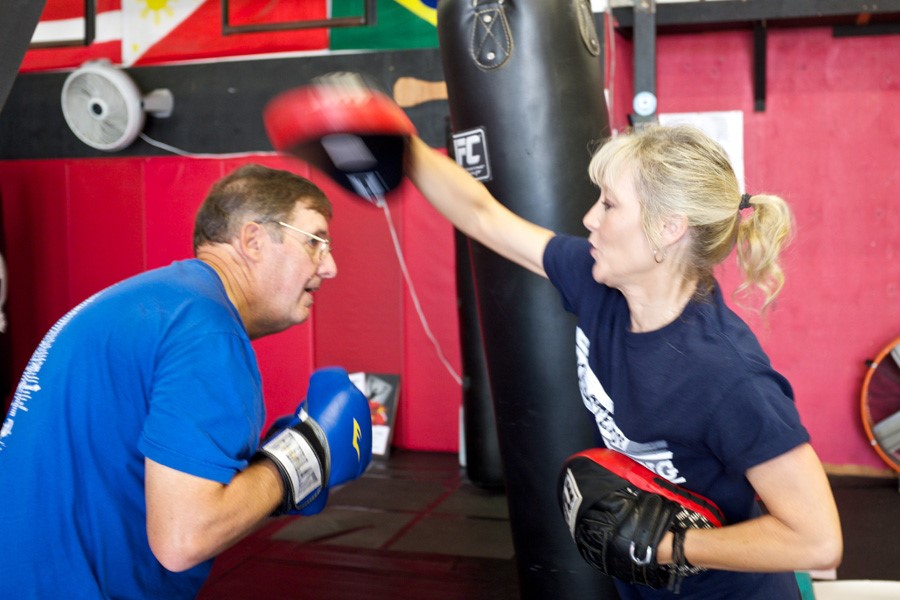
Who has been most helpful in helping you overcome challenges or build and develop the essential skills, qualities or knowledge you needed to be successful?
My family. With my dad being a disabled WWII vet having two prosthetic legs and reactive Rheumatoid arthritis from the freezing temps in the Aleutians, he still got up early and worked hard every day. My older siblings had polio and now struggle with Post-Polio Syndrome, with my brother losing his vision. I was born much later but experienced living with people who are very resilient. They never complained, so when I find myself grumbling about something I remind myself to be grateful for everything I have, including my health. I also have a wonderful husband who is my “corner man.” When I get stressed or overtired, he’s there to say, “It’s okay to take a day off.” If you have a solid foundation and a plan, you can overcome most hurdles. The biggest hurdles are usually ones in your head that you created in a moment of self-doubt.
Contact Info:
- Website: https://rebelfitclub.com
- Instagram: https://www.instagram.com/pd_rebelfitclub/
- Facebook: https://www.facebook.com/PDRebelFitClub/
- Youtube: kimberly Berg’s Rock Steady Boxing or youtube.com/channel/UC66NA1QeeRcTCnc3Usn6p1A
- Other: Phone: 503 407-1335 my email: [email protected]
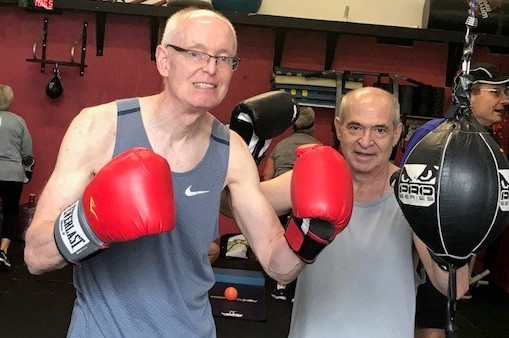
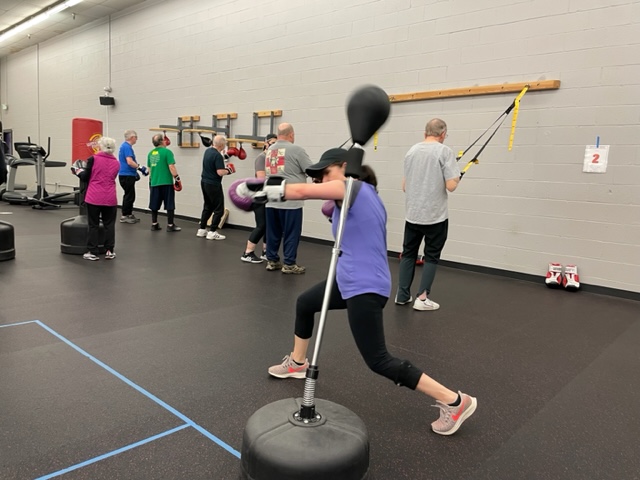
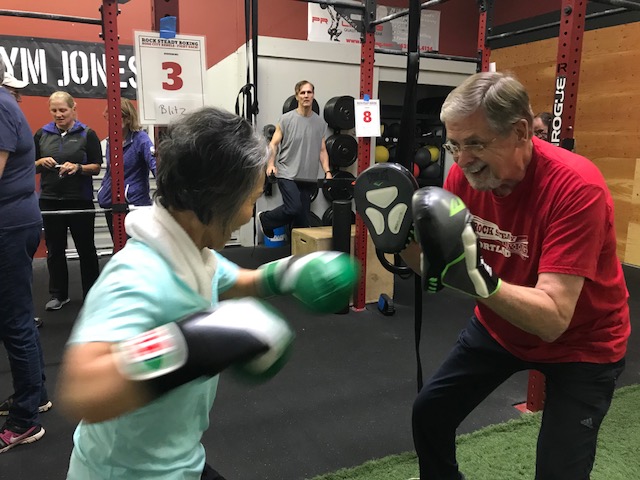
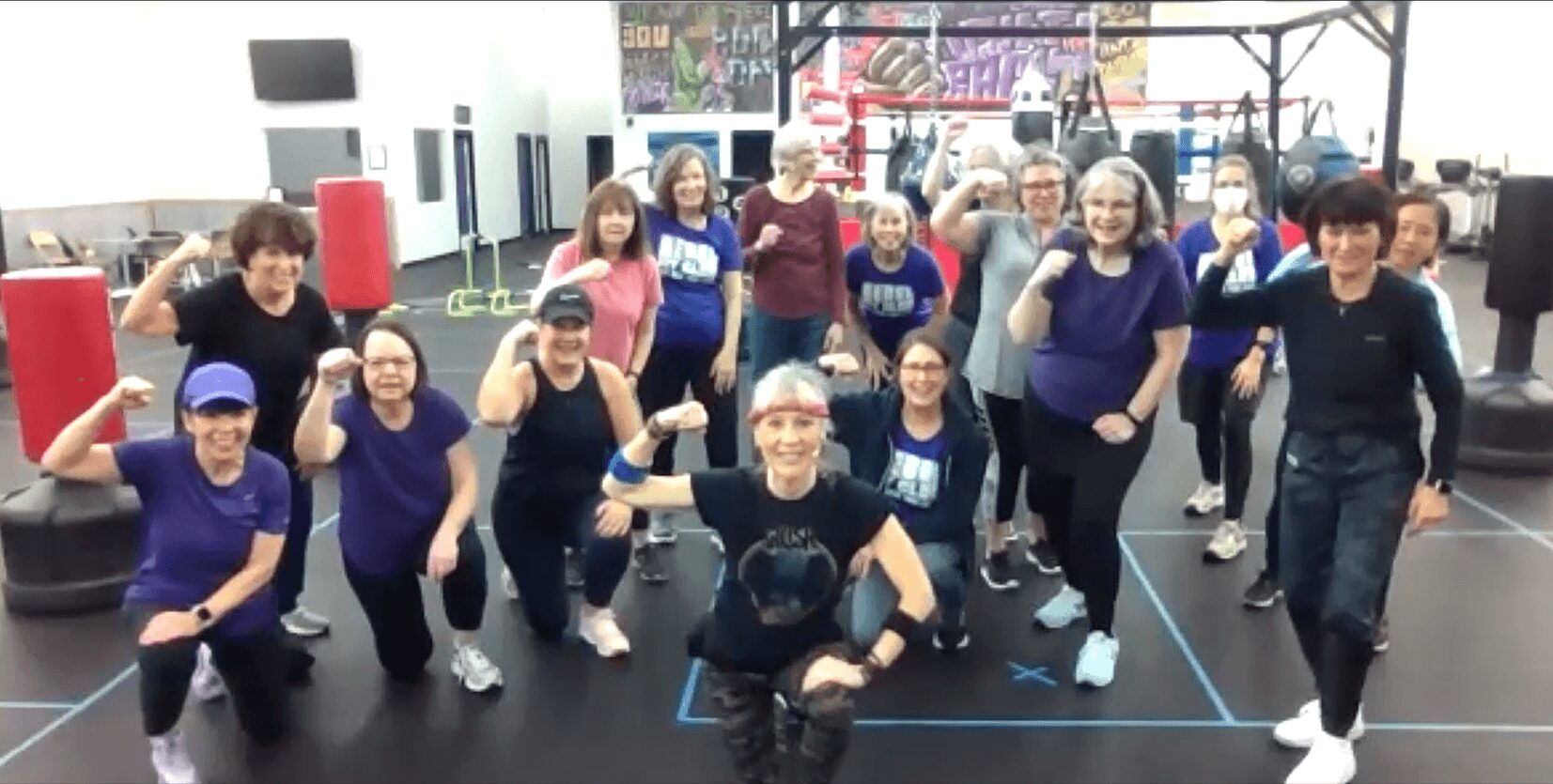
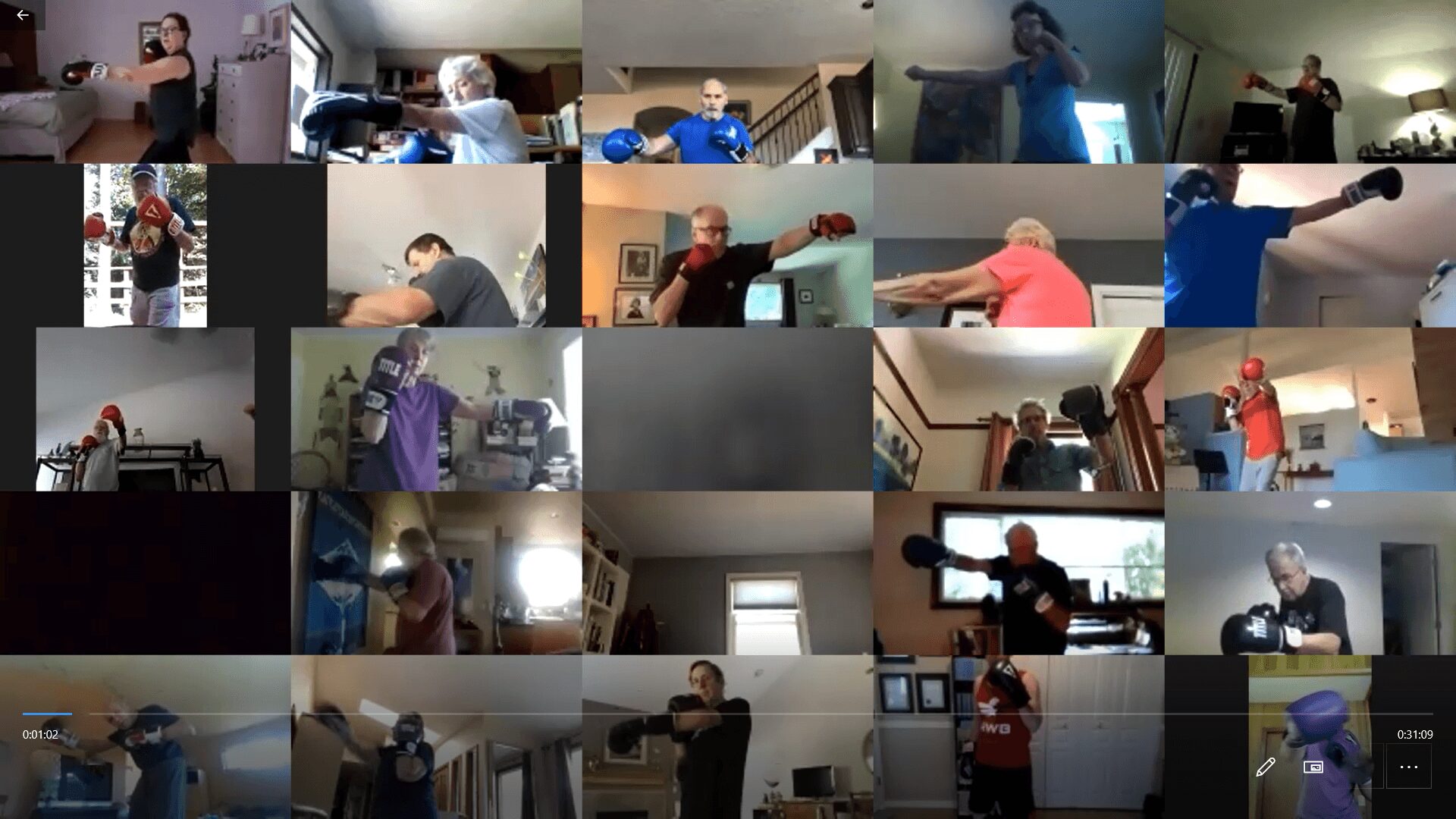
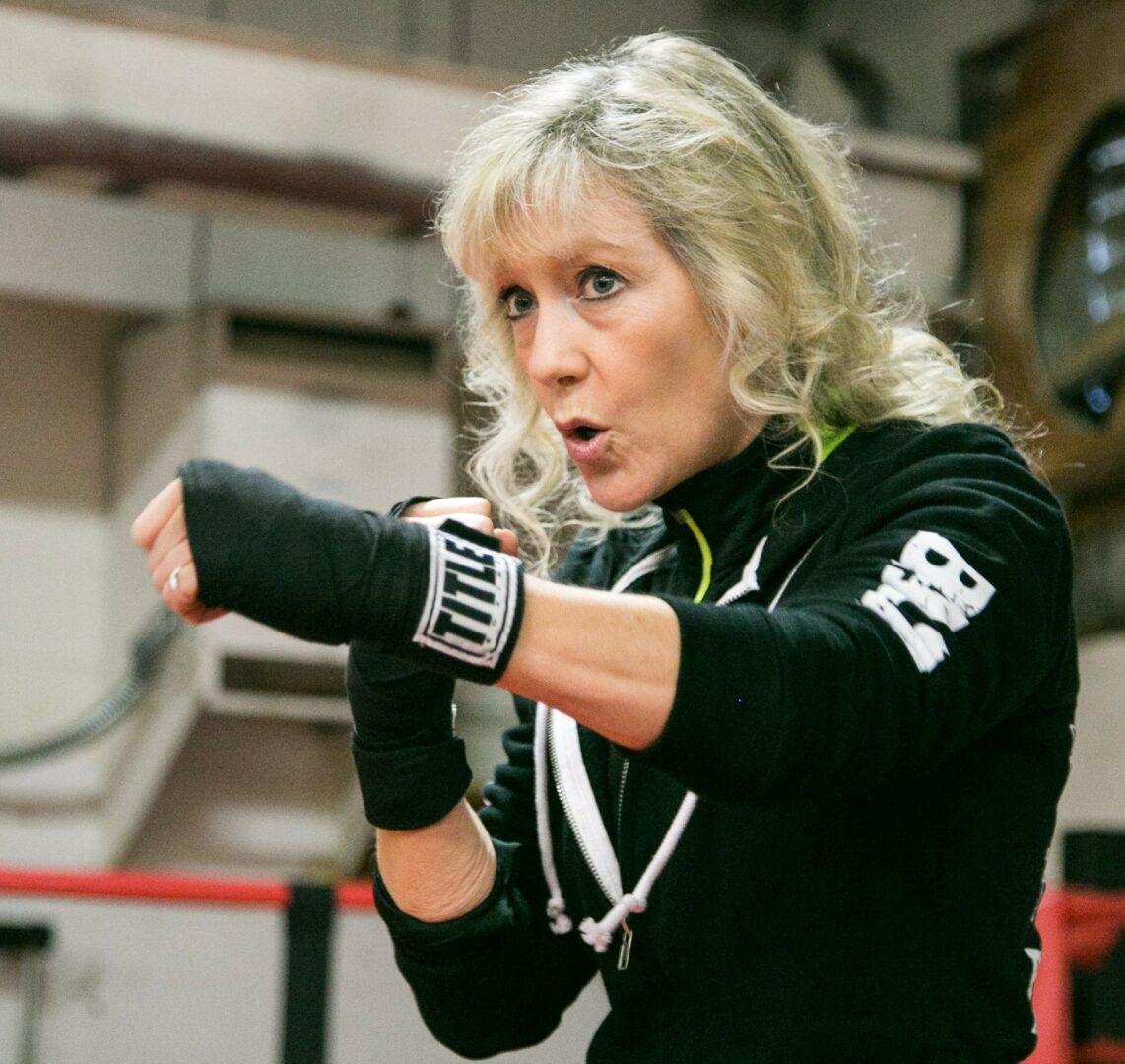
so if you or someone you know deserves recognition please let us know here.

